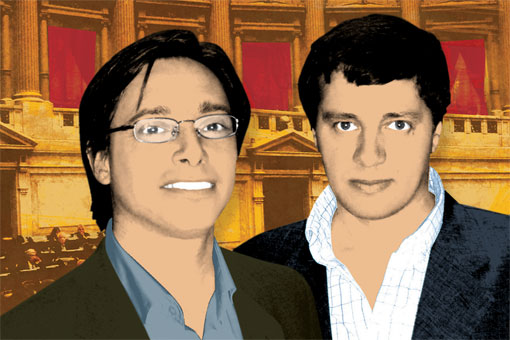We are political opponents, each of us from parties with a long history of hostility in Argentina. But we have come to realize that the struggle between the Partido Justicialista (PJ) and the Unión Cívica Radical (UCR), like past struggles between radicals and conservatives or Peronistas and Anti-Peronistas, has hindered our country’s ability to draft a strategy for the future. To build a more cohesive political system we must restore the original premises that guided the creation of our parties. Even though we can differ in our politics, we share a commitment to the unrestricted defense of democratic institutions and the social rights of citizens.
The fact that we have come together to write this essay suggests that cooperation on a new paradigm for governing Argentina is possible. The first step is to overcome the legacy left by the military dictatorship of 1976–1983, which deliberately undermined Argentina’s party structure in the name of economic improvement. Although we were both only in our teens at the time, it left a lasting lesson: there is no substitute for representative democracy.
Most Argentines today agree. According to Latinobarómetro (2008), 77 percent of Argentines consider democracy, although it has faults, to still be the best form of government. This change of heart has no doubt been the greatest accomplishment of our country in the past years.
Yet, at the same time, Argentine society displays a worrisome ideological and civic fatigue. Between the general elections of 1983 and 2009, voter participation dropped from 85.6 percent to 72.4 percent. This is reflected in the fragmentation of national politics. More than 697 political parties (659 of which are district based) are registered nationwide. The result: both a programmatic and ideological vagueness that hinders pragmatic and actionable solutions to national problems. Public office is now more likely to attract those who seek private gain than those who want to serve Argentines.
This must change. We both agree that unless we can improve the quality of our political structures, we will be unable to address the issues that today, more than ever, worry our society: poverty, unemployment, social inequality, health, violence, and insecurity…





